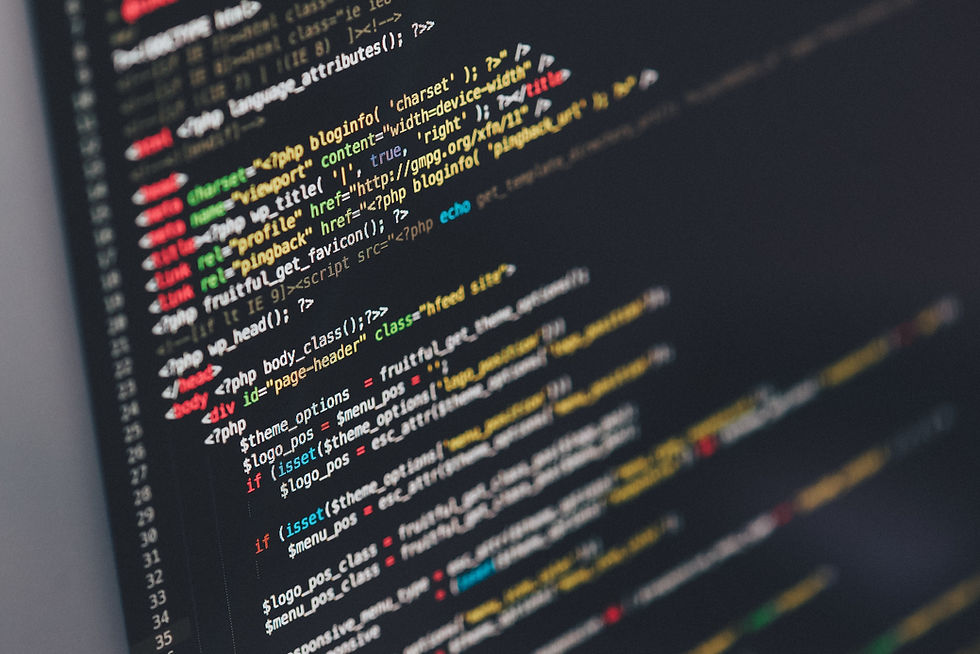The Art of Naming Variables: A Guide to Writing Readable Code
- Admin
- Apr 4, 2023
- 4 min read

Welcome to the world of coding, where every character counts! As developers, we all strive towards writing clean and readable code that can be easily understood by others. However, have you ever thought about the impact of variable names on your code's readability? Choosing appropriate variable names is an art in itself that requires careful consideration and a good understanding of programming concepts. In this blog post, we will explore the art of naming variables and their significance in writing readable code. So buckle up, grab your favourite beverage, and let's dive into the world of variable naming conventions!
What is Clean Code?
Clean code is code that is easy to read and understand. It is well-organized and follows a consistent style. Variable names are clear and descriptive, making the code easier to follow. Functions are short and to the point, making them easy to understand. Code comments are used sparingly, and only when they are truly needed.
Benefits of Writing Readable Code
There are many benefits to writing readable code. Perhaps the most obvious benefit is that it can help make your code easier to understand for yourself and others. When your code is easy to read, it's also generally easier to debug and maintain.
But there are other benefits of writing readable code as well. For example, it can help you communicate your intentions more clearly. This is especially important if you're working on a team with other developers, or if you're open-sourcing your code. Good coding style can also make your code more reliable and resilient.
Ultimately, the goal is to write code that is both readable and maintainable. By following some simple guidelines, you can write code that is easy to read and understand, while still being efficient and concise.
Best Practices for Naming Variables
When it comes to naming variables, there are a few best practices to follow in order to make your code more readable. First and foremost, choose names that are descriptive and easy to understand. For example, instead of using a variable name like "x," try something that describes what the variable represents, such as "customer_name."
In addition, avoid using abbreviations or acronyms in variable names unless they are widely known and understood. Not everyone will be familiar with your company's internal jargon, so using full words and phrases will help to make your code more accessible. Finally, be consistent in your naming conventions throughout your codebase. This will help others who need to read or work with your code to more easily understand it.
Common Mistakes to Avoid when Naming Variables
When it comes to naming variables, there are a few common mistakes that you'll want to avoid. First, make sure that your variable names are clear and concise. Don't use abbreviations or acronyms that could be confusing to someone reading your code. Second, avoid using variable names that are too general. For example, don't name a variable "data" if it's going to hold specific information like customer addresses. Be as specific as possible so that it's clear what the variable contains. Finally, don't use dynamic variable names. That is, don't use a variable name that changes based on the data it contains. This can make your code difficult to read and understand.
Tips for Improving Variable Names
When it comes to naming variables, there are a few things you can do to make your code more readable. Here are some tips:
1. Use descriptive names: A variable name should describe what the variable is used for. For example, if you have a variable that stores a user's first name, you might call it "firstName".
2. Avoid abbreviations: While abbreviations can save you some typing, they can also make your code less readable. For instance, someone reading your code may not know that "i" stands for "index".
3. Use camel case: Variable names should be written in camel case, which means they should start with a lowercase letter and each subsequent word should be capitalized. For example, "firstName" would be written as "firstname".
4. Don't use special characters: Special characters like $ or _ can make your code harder to read. Stick to letters and numbers when naming variables.
Examples of Good Variable Naming Conventions
When it comes to naming variables, there are a few key things to keep in mind:
1. Use descriptive names that give clues about the contents of the variable.
2. Keep names short, but not too abbreviated.
3. Avoid using special characters or numbers in variable names.
4. Make sure all your variable names are consistent throughout your code.
Here are a few examples of good variable naming conventions:
my_name = "John" # Good: Short, descriptive name.
user_id = 123 # Good: Short, descriptive name.
student_list = ["John", "Mary"] # Good: Descriptive name that tells us what is inside the variable.
Conclusion
With the right technique and practice, anyone can learn to name their variables in a way that makes their code easier to read and understand. The art of naming variables is a skill that takes time to develop, but once you have mastered it, your coding skills will be greatly improved. When it comes down to it, good variable names are the key component of creating readable code - so don't forget this simple rule!

Comments